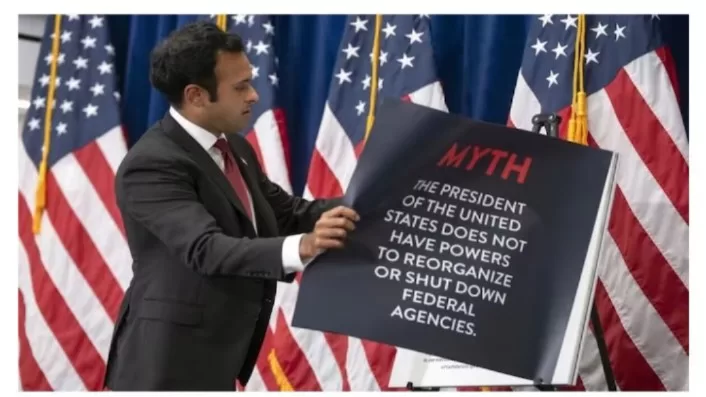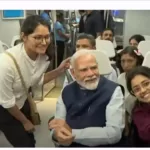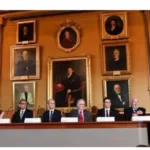Washington – In a bid for the White House in 2024, Indian-American Republican presidential candidate Vivek Ramaswamy has pledged to overhaul the H-1B visa program, referring to it as “indentured servitude.” Ramaswamy aims to replace the current lottery-based system with a more meritocratic admissions process.
The H-1B visa program, highly coveted among Indian IT professionals, permits U.S. companies to employ foreign workers in specialized fields requiring theoretical or technical expertise. It is instrumental for technology firms in hiring thousands of employees annually from countries such as India and China.
It’s worth noting that Mr. Ramaswamy himself has utilized the H-1B visa program a remarkable 29 times. However, he has expressed a firm stance against the existing system, stating, “The lottery system needs to be replaced by actual meritocratic admission. It’s a form of indentured servitude that only benefits the company that sponsors an H-1B immigrant. I’ll overhaul it,” he declared. Furthermore, he advocates for the elimination of chain-based migration, emphasizing the importance of attracting merit-based immigrants who contribute skills to the nation.
Mr. Ramaswamy resigned as the CEO of Roivant Sciences in February 2021 but retained his position as the chairman of the company’s board of directors until February of this year when he announced his presidential campaign. As of March 31, the company and its subsidiaries employed 904 full-time staff members, with 825 of them located in the United States, according to Securities and Exchange Commission filings.
Responding to questions regarding the apparent contradiction between Ramaswamy’s policy stance and his past business practices, his press secretary, Tricia McLaughlin, defended his position, stating, “A policymaker’s role is to do what’s right for the country as a whole. The system is broken and needs fixing.” McLaughlin drew an analogy, pointing out that just as Vivek Ramaswamy acknowledges issues in the U.S. energy sector but still uses water and electricity, his call for H-1B reform aligns with the need for change within the system.
Ramaswamy, himself the child of immigrants, has made headlines for his restrictive immigration policy agenda, including the use of military force to secure the U.S. border and the deportation of U.S.-born children of undocumented immigrants.
H-1B visas remain in high demand, with U.S. businesses submitting 780,884 applications for only 85,000 available slots in fiscal year 2021, marking a more than 60 percent increase in demand. Mr. Ramaswamy, reflecting on his own experience with immigration during the first Republican debate in Milwaukee, stated, “My parents came to this country with no money 40 years ago. I have gone on to found multi-billion-dollar companies.”
Ramaswamy’s stance on H-1B visas parallels the 2016 Trump campaign, which initially took a hardline stance on foreign workers before moderating its rhetoric. As president, Donald Trump temporarily suspended new work visas and restricted the employment of hundreds of thousands of foreign workers in the U.S. as part of a broader effort to limit immigration.
Each year, the U.S. allocates 65,000 H-1B visas available to all applicants and an additional 20,000 for those with advanced U.S. degrees. In July, Indian-American Congressman Raja Krishnamoorthi introduced legislation proposing to double the annual intake of highly skilled foreign workers on H-1B work visas, a category greatly sought after by Indian professionals. The bill also seeks to double the annual number of H-1B visas from 65,000 to 130,000, allowing American employers, particularly in critical technology sectors, to tap into the world’s best talent. Currently, nearly three-quarters of H-1B visas are awarded to Indian professionals.







